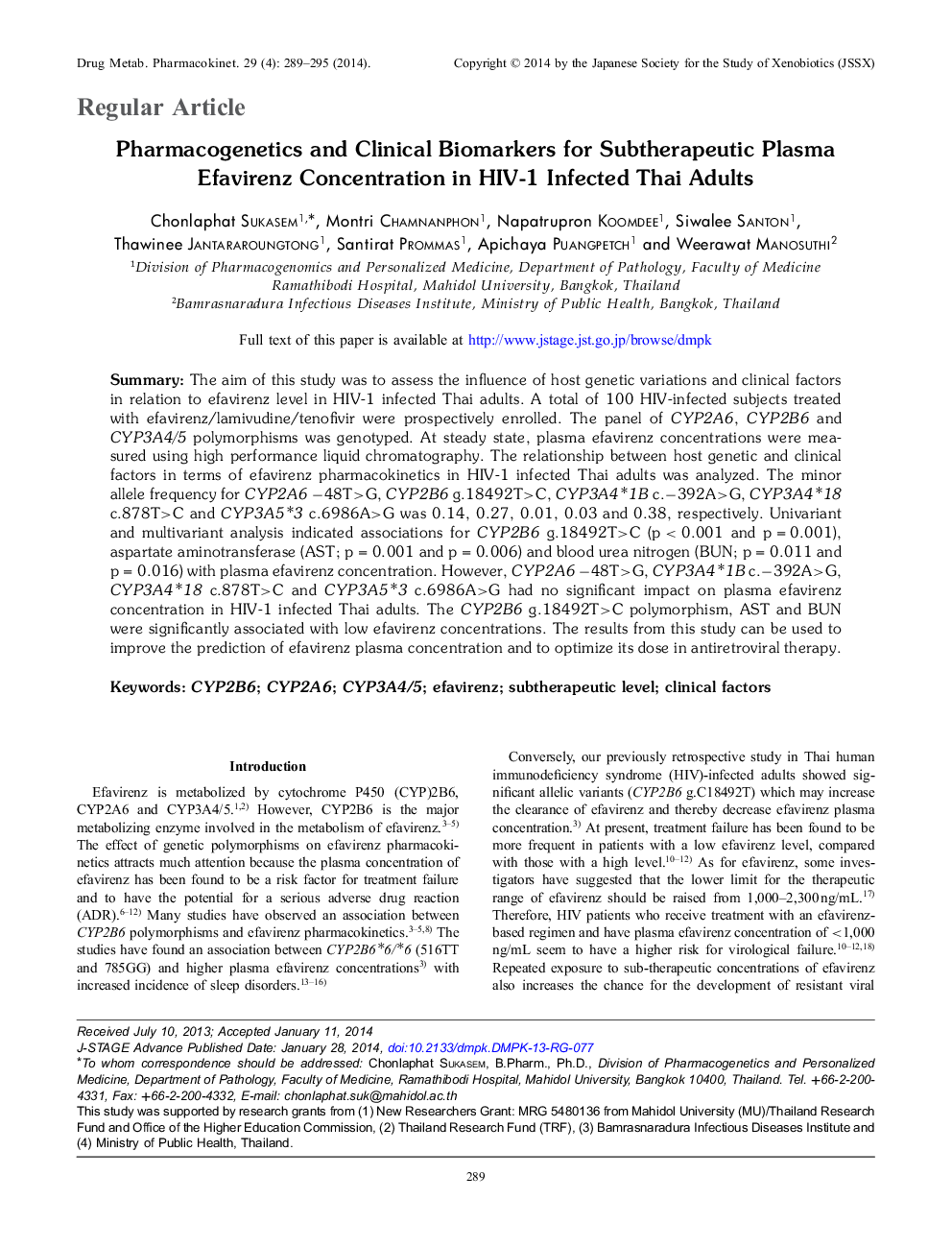| Article ID | Journal | Published Year | Pages | File Type |
|---|---|---|---|---|
| 2478869 | Drug Metabolism and Pharmacokinetics | 2014 | 7 Pages |
Summary:The aim of this study was to assess the influence of host genetic variations and clinical factors in relation to efavirenz level in HIV-1 infected Thai adults. A total of 100 HIV-infected subjects treated with efavirenz/lamivudine/tenofivir were prospectively enrolled. The panel of CYP2A6, CYP2B6 and CYP3A4/5 polymorphisms was genotyped. At steady state, plasma efavirenz concentrations were measured using high performance liquid chromatography. The relationship between host genetic and clinical factors in terms of efavirenz pharmacokinetics in HIV-1 infected Thai adults was analyzed. The minor allele frequency for CYP2A6 –48 T>G, CYP2B6 g.18492 T>C, CYP3A4*1B c.–392A>G, CYP3A4*18 c.878 T>C and CYP3A5*3 c.6986A>G was 0.14, 0.27, 0.01, 0.03 and 0.38, respectively. Univariant and multivariant analysis indicated associations for CYP2B6 g.18492 T>C (p < 0.001 and p = 0.001), aspartate aminotransferase (AST; p = 0.001 and p = 0.006) and blood urea nitrogen (BUN; p = 0.011 and p = 0.016) with plasma efavirenz concentration. However, CYP2A6 –48 T>G, CYP3A4*1B c.–392A>G, CYP3A4*18 c.878 T>C and CYP3A5*3 c.6986A>G had no significant impact on plasma efavirenz concentration in HIV-1 infected Thai adults. The CYP2B6 g.18492 T>C polymorphism, AST and BUN were significantly associated with low efavirenz concentrations. The results from this study can be used to improve the prediction of efavirenz plasma concentration and to optimize its dose in antiretroviral therapy.
